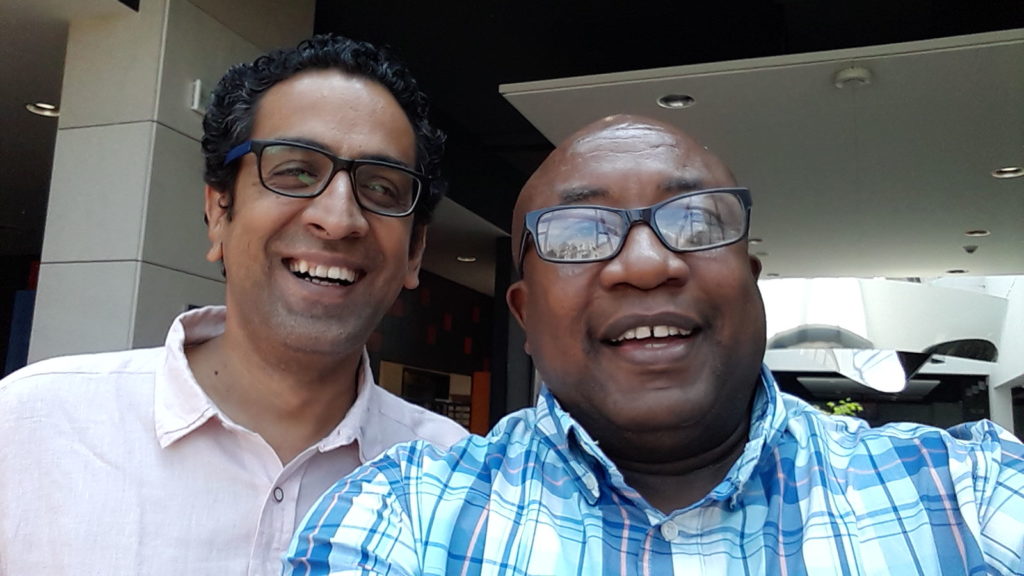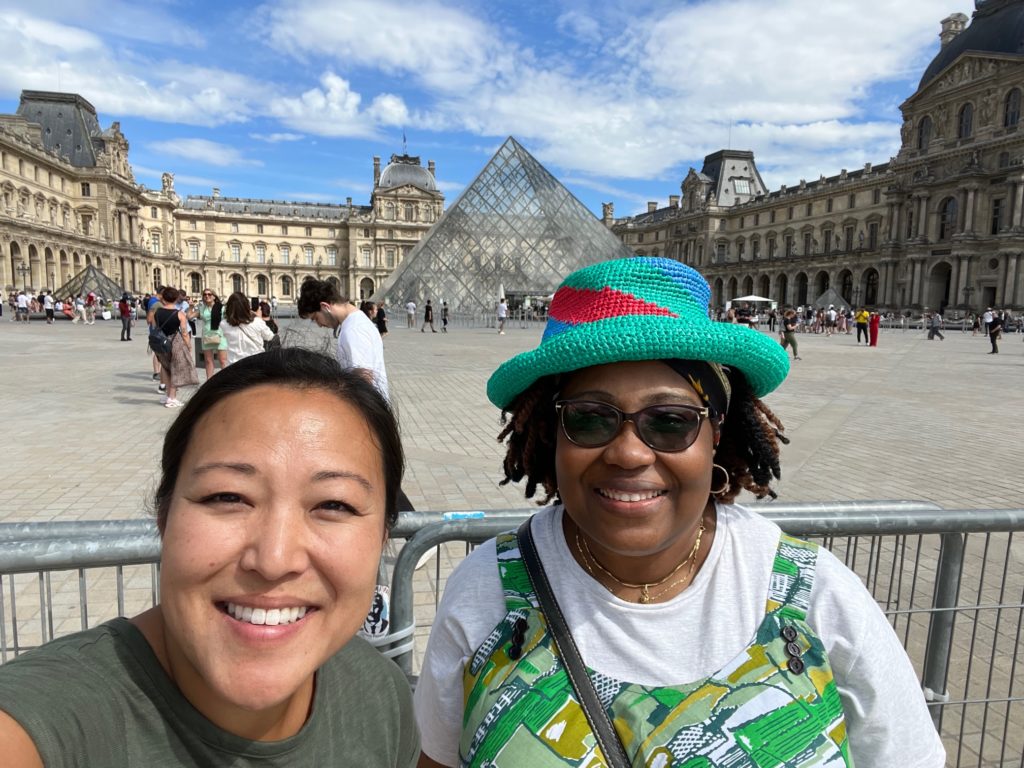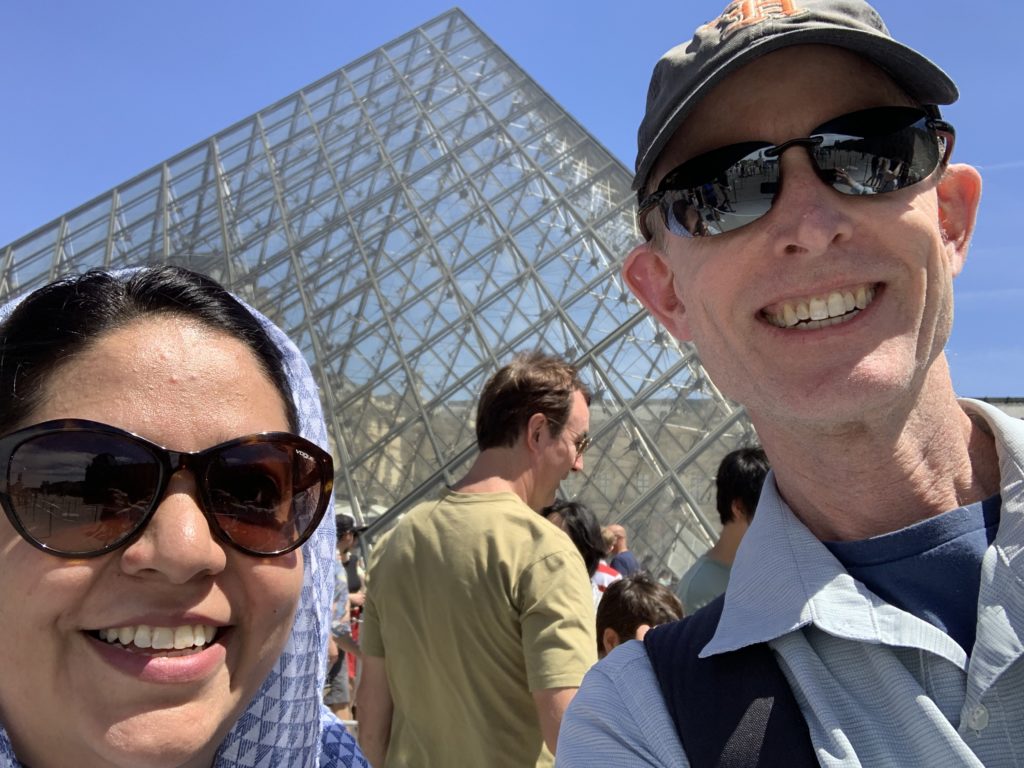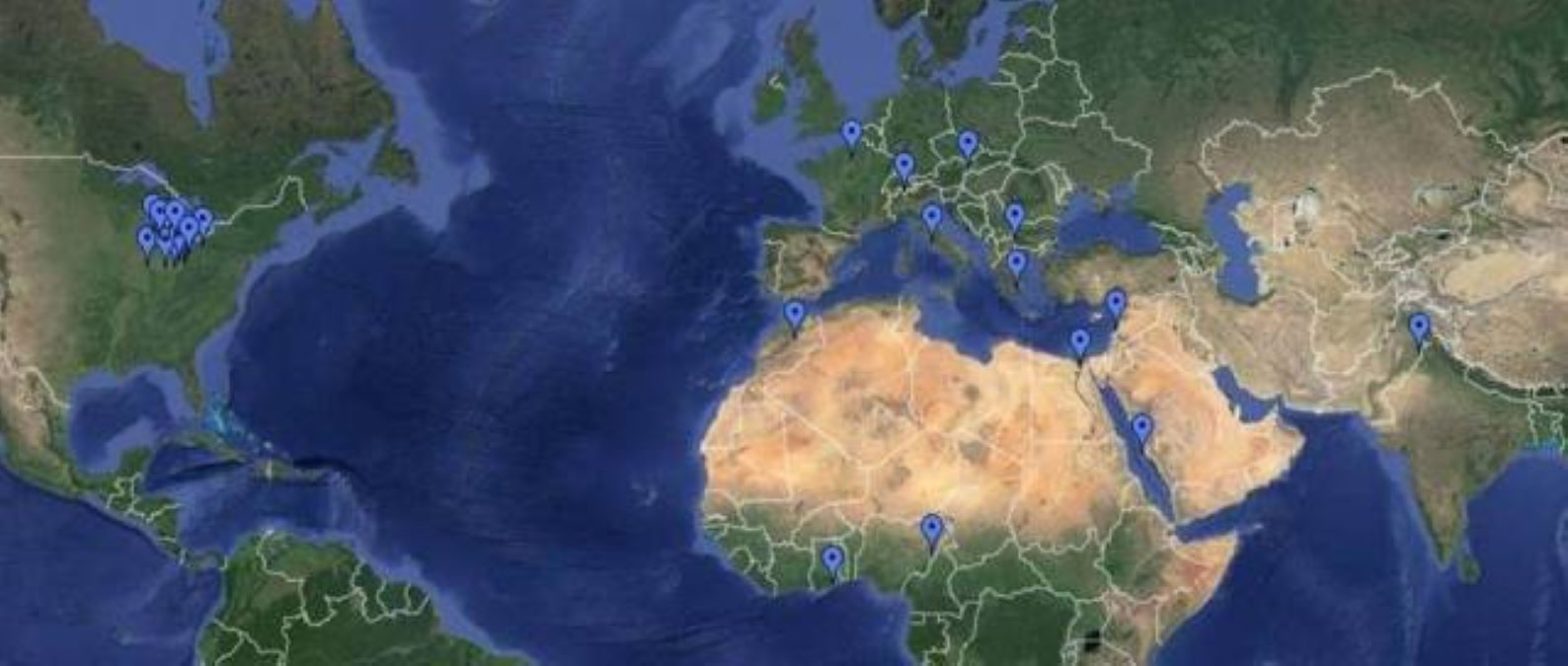Students in some Hope College English courses have the opportunity to study at other colleges around the world without leaving Hope’s campus. Four members of the English department faculty have developed courses in the Global Course Connections program of the Global Liberal Arts Alliance (GLAA).
In globally connected courses, a Hope professor works with a professor at one of the colleges in the GLAA to create links between two similar courses. Connections may involve activities such group projects between students at both campuses, synchronous class sessions by videoconference, or shared discussion forums. Two new connected courses will be taught in the English department this coming fall.
Department chairperson Dr. Ernest Cole is Hope’s pioneer professor of globally connected courses, having taught five of them. All have been versions of English 234, Modern Global Literature, with different themes and global collaborators:
- “Global Literature and the Environment: African and Indian Literature” with Ashutosh Potdar, FLAME University, India
- “African Literature and Mental Health: Postcolonialism as Nervous Condition” with Jams Hodapp, American University of Beirut, Lebanon
- “Global Literature and Trauma: African and Indigenous American Literature” with Adam Waterman, American University of Beirut
- “Mental Health, Trauma, and Disability in African and Latinx Literature” with Sara Newman, Universidad San Francisco de Quito, Ecuador.
- “The Stories We Tell: Trauma and Disability from a Literary & Psychological Perspective” with Sara Newman, Universidad San Francisco de Quito and Erin Henshaw, Denison University, Ohio

This past spring, Dr. Pablo Peschiera connected his section of English 253, Introduction to Creative Writing, with a first-year writing course at American University of Nigeria. “My students quickly noticed their similarities to the Nigerian students in terms of goals, family dynamics, friendships, and etc.,” said Peschiera. “But, more importantly, they felt they had a window into a different culture, with significantly different challenges and customs.”
This coming fall, two more faculty members will offer globally connected courses. Dr. Kristin VanEyk will connect her English 113, Expository Writing on “Language and Culture” with another first-year writing course at American University of Nigeria, taught by Emilienne Akpan. Dr. Curtis Gruenler’s English 480, Introduction to Literary Theory, will be connected to a similar course at Forman Christian College in Lahore, Pakistan.
Both VanEyk and Gruenler participated in a three-day workshop in June at The American University of Paris, where they had the opportunity to meet with their collaborators. VanEyk said she was grateful for the opportunity to meet Akpan in person after so many email exchanges, and that the in-person connection helped their collaboration. “My course partner Emilienne and I connected as both colleagues and friends. Through our many emails back and forth and our opportunity to work together on a project, we were able to experience a little bit of what our students will experience,” said VanEyk. “The workshop also created space for a rich dialogue about shared values and experiences across the many global sites.”

Said Gruenler, “I felt like my collaborator, Dr. Qurratulaen Liaqat, and I really hit it off. We are excited for the conversations our students will have with each other on topics like feminism and post-colonial studies.” The two courses will connect primarily during a five-week period in the middle of the semester for both schools, which start a month apart. “Plus,” added Gruenler, “one of our assignments for the workshop was a brief field experience relevant to our connected courses, so we went to the Louvre, since literary theory applies also to visual art and neither of us had ever been there. We got to share with each other from our own areas of expertise, like Islamic art for her and medieval art for me.”

One of the leaders of the workshop was Dierdre Johnston, a recently retired member of Hope’s Department of Communications. She and her co-leader from Kenyon College, Irene López, recently published a book based on their experiences with the Global Course Connections program, The Wiley Handbook of Collaborative Online Learning and Global Engagement.


